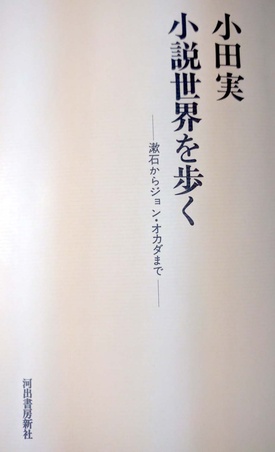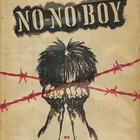This is the final installment of the series on "No-No Boy." During this time, I was able to publish a new translation of the book, which I had been working on in parallel, exactly 75 years after the Pearl Harbor. At the same time, Donald Trump, a president who takes an exclusive policy against immigrants, appeared in the United States.
Most people would agree that it is necessary to step up vigilance in order to eliminate terrorists. However, it is hard to avoid the view that the thinking behind this policy is tinged with prejudice against certain races, ethnicities, and religions.
Prejudice against Japanese Americans by Japanese people
America is made up of a diverse range of races, ethnicities, religions, and cultures. Of course, looking back at history, there has been unimaginable discrimination and prejudice against Native American and black people, and it still exists today. The same was true for Japanese and other Asians from the beginning of immigration, and after the war, intense hostility was felt against Japanese people.
Prejudice is directed at people of other races, but in fact Japanese people have also had a fair amount of prejudice against Japanese people. This seems to be one answer to the question of whether Japanese-American author John Okada's work "No-No Boy," which depicts the world of Japanese-Americans, should have been more highly regarded in Japan.
What reminded me of the prejudices that exist among Japanese people, myself included, was the publication of "Oda Minoru's Walk Through the World of Novels" (Kawade Shobo Shinsha) in 1980. Oda Minoru, a famous writer and social and political activist who became famous for his book "I'll Look at Everything," in which he wrote about what he saw, felt, and traveled the world after studying abroad in the United States, provides critiques of 14 novels.
The subtitle reads "From Soseki to John Okada," and although the book features many famous authors, at the end it introduces "An important extra novel...John Okada's No No Boy." This was shortly after the Japanese translation was published, and Oda was shocked when he encountered the novel. However, before that, he expressed his prejudice against Japanese Americans.
Oda met many different people in America, including blacks and Latinos, but he never actively sought to get to know Japanese people. Born in 1935, he saw Japanese Americans who came to the United States during the postwar occupation and felt that they were "just trying to act like white people" and "bragging about being American."
It was so moving that it made my body tremble.
However, while getting to know one Nisei, Oda learns that he experienced an internment camp, went to war, and even after returning from the war and graduating from college, he was unable to find a job because he was a "Jap." These experiences are common to Asian Americans and other people of "something descent," and Oda is interested in reading their literature.
I was looking for a Japanese writer who could be like Richard Wright (a pioneer of African-American literature), and that's when I discovered John Okada. At first, I read only the first chapter of Okada's work, which was introduced in "Aiiieeeee," an anthology of Asian-American literature edited by young Asian-Americans. "It moved me so deeply that it made my body tremble," I said.
Oda writes that there are several problems with this novel:
The poverty of the "Issei" and "Nisei." Discrimination and discrimination (they make fun of the "Kurombo." The "Kurombo" also make fun of them). The gap between generations (especially since there is no common ground between the "Issei" and "Nisei."). The differences between "America" and "Japan." The gap. The war that happened in between. The horrors of war. What is a mother country? What is a race? What is patriotism? What is a nation? What are citizens? What is a human being? What is life? What is making money? What is happiness in life? What is sex? What is love? ...
Dreaming of an ideal beyond hatred
That is certainly true, but what permeates all of this, ultimately, one senses a vague sense of the author's loathing for the ugly real world, and, conversely, a world of dreams and ideals that would erase that loathing.
Hatred and discrimination that occurs between nations, ethnicities, races, and even within the same race or ethnic group... We are sick of it all, but somewhere deep down we still have a faint, dreamlike hope for a quiet rationality.
With the emergence of President Trump, America is now in chaos, as if someone had opened Pandora's box, with hatred and contempt for others suddenly erupting.
In "No-No Boy," Ichiro's friend Gary, who is also Japanese-American, says something in a conversation with Ichiro that made a lasting impression on me.
"These are terrible times, for us at least. Everyone around us is ruled by emotion. They're all emotional and they don't think with their heads."
I feel like this novel has taught us that now, because emotions, especially negative emotions, are becoming more widespread, we need to calmly explain reason, rather than just attacking and criticizing. I want to remember that what came out of "Pandora's Box" was not only disaster, but also "hope" at the end.
(Titles omitted)
© 2017 Ryusuke Kawai







